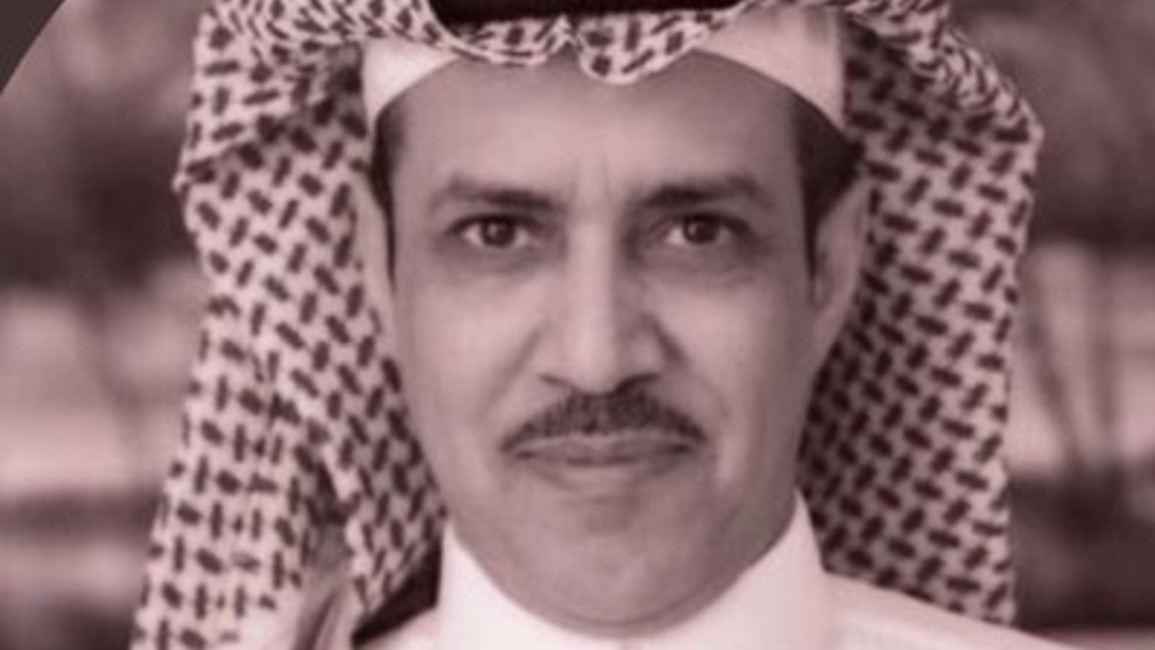Saudi journalist and corruption critic, Saleh Al-Shehi, dies shortly after prison release amid coronavirus fears
Saleh Al-Shehi was transferred to an intensive care unit at the Arar hospital, in the north of the kingdom, in May after showing signs of an unnamed disease.
Prominent rights activists, including leading Saudi dissidents, quickly blamed the state for medical negligence in prison, where a large number have remained despite Covid-19 concerns.
"May God have mercy on Saleh Al-Shehhi who died today... after being released from prison. May God have mercy on Abdullah Hamid who died on the floor of his cell due to medical negligence. May God have mercy on Jamal Khashoggi who they killed in the consulate," Abdullah Al-Odah, son of prominent Saudi Sheikh Salman Al-Odah, said in a tweet.
"Among them is he who has fulfilled his vow [to the death], and among them is he who awaits [his chance]. And they did not alter [the terms of their commitment] by any alteration," he added, referencing a verse from the Holy Quran.
Twitter Post
|
"Overcrowded prison populations face a heightened risk of coronavirus contagion. There are also grave concerns that Saudi prison authorities have been denying inmates adequate and timely medical care.
"As such, it is of the utmost urgency that the Saudi government immediately and unconditionally releases women’s rights activists and other human rights defenders from prison," she said.
The Al-Watan columnist was detained in 2018 after accusing the royal court of corruption, during an appearance on the TV show Yahalla.
Shehi wrote regularly about the government's use of funds recovered during a purported anti-corruption drive that began in November 2018.
At the time, Saudi authorities arrested dozens of top officials and businessmen and held them at the five-star Ritz-Carlton hotel in Riyadh.
The Committee to Protect Journalists (CPJ) watchdog has said that Saudi Arabia’s growing crackdown on suspected dissent is part of Crown Prince Mohammad bin Salman's attempts to consolidate power.
"Despite promises of reform and moderation from Saudi Arabia's emerging leadership, it is clear from Saleh al-Shehi's arrest that repression as usual continues," said Sherif Mansour, the CPJ's regional coordinator, at the time of his arrest.
Al-Shehi's death came just months after Saudi dissident and human rights activist Abdullah al-Hamid, 69, died after being denied medical treatment in detention.
According to Amnesty International, Al-Hamid died on 24 April after having a stroke and entering a coma on 9 April.
Arrested with pre-existing health conditions, Al-Hamid was prison authorities declined to give him medical treatment even though doctors said in January that he needed heart surgery, as his health declined.
He was threatened into silence by prison authorities and was told he would be prevented from seeing his family if he told his relatives about his declining health, Amnesty said.
His death is being mourned as yet another tragedy in Saudi prisons, where dissidents are subjected to brutal torture.
"He was very brave and bold," said Adam Coogle, deputy director for the Middle East and North Africa at Human Rights Watch.
Despite Al-Hamid’s death, Coogle said that the movement for intellectual freedom in Saudi Arabia will continue.
"It is bleak right now, but I wouldn't say the movement it inspired is dead. You can suppress these things, but it is difficult to eradicate ideas.”
Al-Hamid was a founding member of the Saudi Civil and Political Rights Association (ACPRA) and was sentenced to 11 years in jail in March 2013, campaigners said.
He was convicted on multiple charges, including "breaking allegiance" to the Saudi ruler, "inciting disorder" and seeking to disrupt state security, Amnesty International said.
Follow us on Facebook, Twitter and Instagram to stay connected



